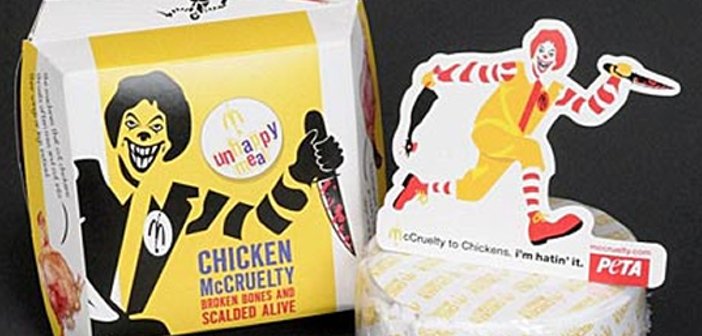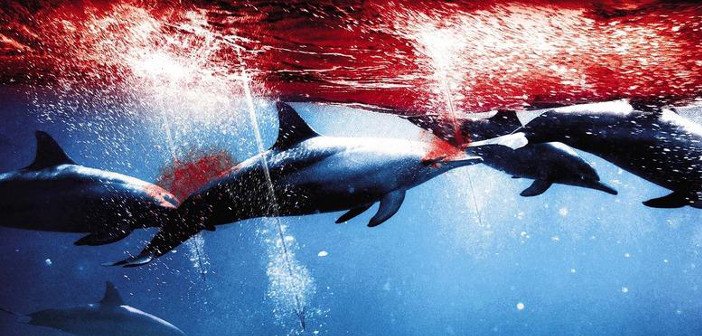Extremism, Art, and Effectiveness | Considering the Impact of Activism
Activism can be subjective. The point of protesting is to try change things for what you believe to be better. I call myself an avid activist because I fight for LGBT rights, gender equality, and putting a stop to animal cruelty. Such social changes are what I believe in and what I campaign for. Those are my views.
Members of the Westboro Baptist Church call themselves avid activists because they fight for the anti-gay movement, the ‘God hates Fags’ campaign, and the belief that Barrack Obama is the anti-Christ. Such is what they believe in and what they campaign for. Those are their views. That is the wonderful and aggravating thing about activism – everyone has the right to their opinions, even if those opinions are really, very stupid. As I said, activism can be subjective.

“Activism is the rent I pay for living on this planet” is a quote from American author and activist Alice Walker. And it makes sense doesn’t it? By having a stance on a subject and fighting for your beliefs, in a small or a big way, anyone can be part of activism. But activism can also sometimes be counterproductive when extreme protestors go to intense lengths to get their points across. One group who always seem to blur the lines between ‘courageous activists’ and ‘nightmare inducing extremists’ is PETA.
As most of us probably know, PETA are pretty extreme in their fight for the ethical treatment of animals. They’ve handed out ‘Unhappy Meals’ featuring pictures of a knife wielding Ronald McDonald and blood soaked rubber chickens to children. They slammed 7 year old child star Honey Boo Boo for naming her pet chicken ‘Nugget.’ They’ve even thrown a tofu pie at Vogue editor Anna Wintour for promoting the wearing of animal fur in her magazine – an act which American legal scholar and animal rights activist Gary Francione deemed ultimately futile.
I’m opposed to all violence so my view is if I’m ever going to get you to see my way on these things, I’m going to have to educate you (…) And I don’t educate you by throwing a pie at you.
PETA’s methods can be over the top, but the numerous animal welfare cases they’ve won over the years cannot be ignored. It’s easy to both admire and fear groups like PETA. The former because of their unrelenting energy in campaigning for the rights of animals who are being unfairly treated. The latter because of their essentially ineffective methods of guilt tripping people into submission.

One of the more insidious things to consider with PETA is their alarming euthanasia rates. Although PETA do not believe that animals should be kept as pets at all, the group do use housing shelters for abandoned animals. However, in 2013 it came to light that those shelters have extremely high kill rates. The American Kennel Club issued a statement that year expressing their deep concerns for the animals in PETA’s care.
While most shelters strive for a 90% re-homing rate, PETA is apparently proud of their 99% killing rate and callously boasts that the animals it rescues are ‘better off dead.’ That is an alarming ratio that should be fully investigated. PETA’s track record is absolutely unacceptable.
PETA have also been heavily criticised for the likes of their I’d Rather Go Naked Than Wear Fur campaign which, despite the group’s claims that there is nothing sexual about the female body, relies solely on the sexual objectification of the female body. In the midst of all this controversy it’s easy to see, whether intentionally or not, that PETA are definitely being talked about. The group may actively promote public education, cruelty investigations, research, animal rescue and protest campaigns, but upon reviewing all the good and bad things PETA do, it is easy to understand how even the most passionate animal rights activist could still be confused by their intentions.

I find films and documentaries to be one of the most effective forms of activism. It’s easy to ignore things like the horrors of the meat industry and animal cruelty because when we don’t, admitting that we may be part of the problem is harder to avoid. However, the success of documentaries like Blackfish and The Cove, and the worldwide conversation they incited, proves that uncovering revolting cruelty in a logical, non-extremist way can do wonders for the animal rights movement.[pullquote]It’s easy to ignore things like the horrors of the meat industry and animal cruelty because when we don’t, admitting that we may be part of the problem is harder to avoid.[/pullquote]
Academy Award winning documentary The Cove uncovered the capturing and mass slaughter of thousands of dolphins in a little Japanese fishing village called Taiji. In the village there is a small cove that is concealed from the public, but every year the water in the cove runs red with the blood. The combined work of the Dolphin Project, who fight for the lives of aquatic animals all over the world, and The Cove has had a profound effect on the Japanese meat industry as the demand for dolphin meat has dropped by two thirds since the documentary’s release back in 2009. Just like Blackfish, the film’s achievements are still being acclaimed across the globe.
Similarly, since the documentary about orca Tilikum and his lifetime of captivity in SeaWorld hit our screens, the company have reported losses of $25.4 million, seen significant drops in attendance to its theme parks, lost a partner in Southwest Airlines, and experienced a share price drop of 44%. Most notably, the company announced plans to end their killer whale shows in San Diego and to scrap its orca breeding programme entirely.

[pullquote]While I personally praise PETA for its tenacity in fighting for animal rights and its many successful court room wins, Blackfish managed to muster a following that changed the animal rights game.[/pullquote]
But Blackfish’s effect didn’t just stop with SeaWorld. Activists have recently taken legal action against a marine park in France and the conditions its animals are kept in after a number of orcas were killed during a storm. While I personally praise PETA for its tenacity in fighting for animal rights and its many successful court room wins, Blackfish managed to muster a following that changed the animal rights game.
If we’re looking to be inspired by humans and our quest to help humanity, we can look at monumentally successful documentaries like these. Or, we can look at ourselves, and how, in big or small ways, we too can make change happen. When activism is done right, we can move mountains, help suffering animals, and even save lives. Sometimes when my own activist endeavours seem hopeless, I like to think about something Albert Einstein once said– “The world will not be destroyed by those who do evil, but by those who watch them without doing anything.”
